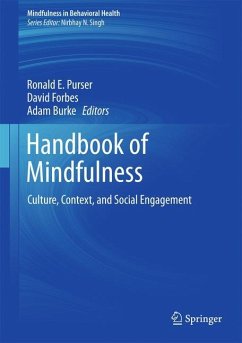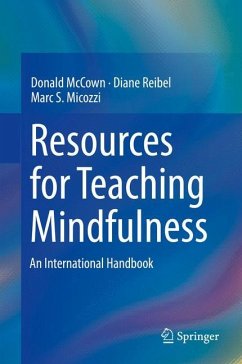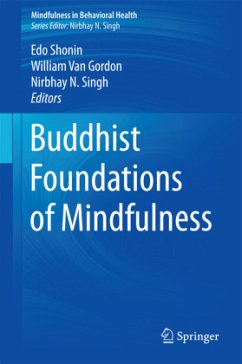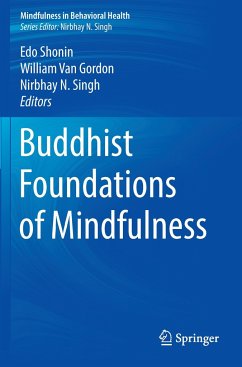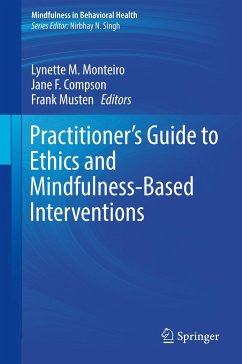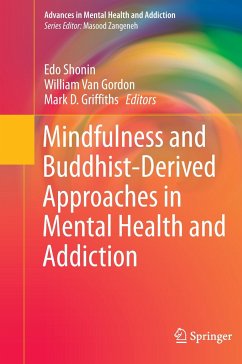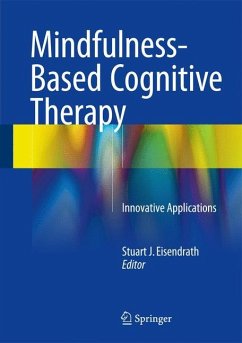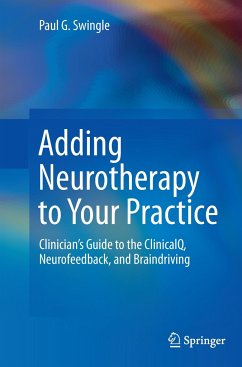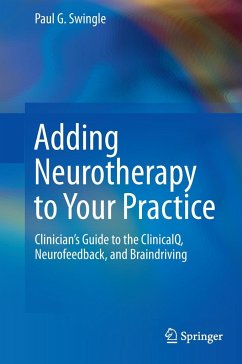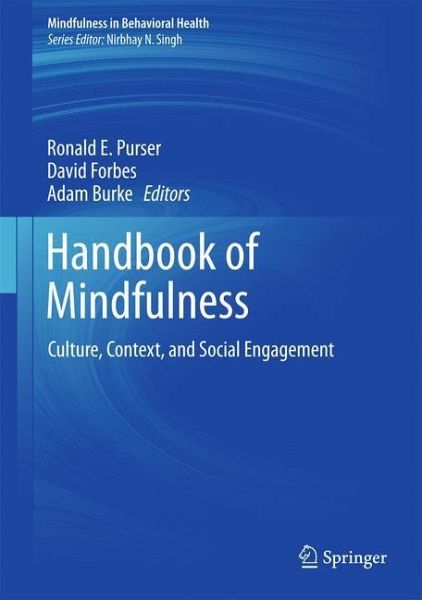
Handbook of Mindfulness
Culture, Context, and Social Engagement
Herausgegeben: Purser, Ronald E.; Forbes, David; Burke, Adam

PAYBACK Punkte
84 °P sammeln!
This handbook explores mindfulness philosophy and practice as it functions in today's socioeconomic, cultural, and political landscape. Chapters discuss the many ways in which classic concepts and practices of mindfulness clash, converge, and influence modern theories and methods, and vice versa. Experts across many disciplines address the secularization and commercialization of Buddhist concepts, the medicalizing of mindfulness in therapies, and progressive uses of mindfulness in education. The book addresses the rise of the, "mindfulness movement", and the core concerns behind the critiques ...
This handbook explores mindfulness philosophy and practice as it functions in today's socioeconomic, cultural, and political landscape. Chapters discuss the many ways in which classic concepts and practices of mindfulness clash, converge, and influence modern theories and methods, and vice versa. Experts across many disciplines address the secularization and commercialization of Buddhist concepts, the medicalizing of mindfulness in therapies, and progressive uses of mindfulness in education. The book addresses the rise of the, "mindfulness movement", and the core concerns behind the critiques of the growing popularity of mindfulness. It covers a range of dichotomies, such as traditional versus modern, religious versus secular, and commodification versus critical thought and probes beyond the East/West binary to larger questions of economics, philosophy, ethics, and, ultimately, meaning.
Featured topics include:A compilation of Buddhist meditativepractices.
Selling mindfulness and the marketing of mindful products.
A meta-critique of mindfulness critiques - from McMindfulness to critical mindfulness
Mindfulness-based interventions in clinical psychology and neuroscience.
Corporate mindfulness and usage in the workplace.
Community-engaged mindfulness and its role in social justice.The Handbook of Mindfulness is a must-have resource for clinical psychologists, complementary and alternative medicine professionals/practitioners, neuroscientists, and educational and business/management leaders and policymakers as well as related mental health, medical, and educational professionals/practitioners.
Featured topics include:A compilation of Buddhist meditativepractices.
Selling mindfulness and the marketing of mindful products.
A meta-critique of mindfulness critiques - from McMindfulness to critical mindfulness
Mindfulness-based interventions in clinical psychology and neuroscience.
Corporate mindfulness and usage in the workplace.
Community-engaged mindfulness and its role in social justice.The Handbook of Mindfulness is a must-have resource for clinical psychologists, complementary and alternative medicine professionals/practitioners, neuroscientists, and educational and business/management leaders and policymakers as well as related mental health, medical, and educational professionals/practitioners.



